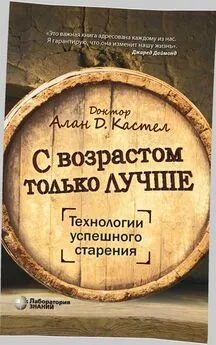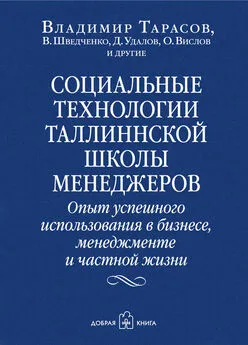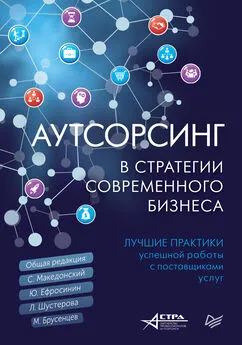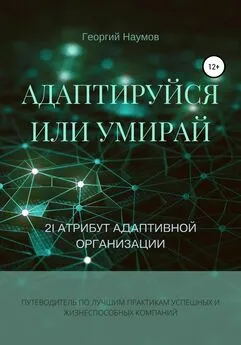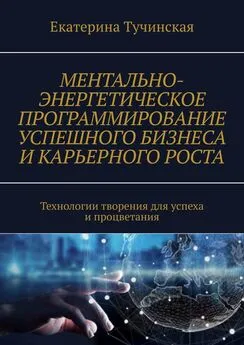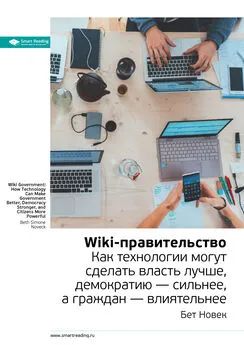Алан Кастел - С возрастом только лучше. Технологии успешного старения
- Название:С возрастом только лучше. Технологии успешного старения
- Автор:
- Жанр:
- Издательство:Лаборатория знаний
- Год:2020
- ISBN:978-5-00101-921-3
- Рейтинг:
- Избранное:Добавить в избранное
-
Отзывы:
-
Ваша оценка:
Алан Кастел - С возрастом только лучше. Технологии успешного старения краткое содержание
Поскольку, как свидетельствует Алан Д. Кастел, готовиться к старости нужно начинать загодя, книга будет интересна читателям самого разного возраста.
С возрастом только лучше. Технологии успешного старения - читать онлайн бесплатно ознакомительный отрывок
Интервал:
Закладка:
Hess. T. M., & Hinson, J.T. (2006). Age-related variation in the influences of aging stereotypes on memory in adulthood. Psychology and Aging, 21, 621–625.
99
Adams, C., Smith, M.C., Pasupathi, M., & Vitolo, L. (2002). Social context effects on story recall in older and younger women: Does the listener make a difference? Journals of Gerontology, 57, P28-P40.
100
Rendell, P. G., Castel, A. D., & Craik, F. I. (2005). Memory for proper names in old age: A disproportionate impairment? Quarterly Journal of Experimental Psychology Section A, 58, 54–71.
101
Castel, A. D. (2005). Memory for grocery prices in younger and older adults: The role of schematic support. Psychology and Aging, 20, 718.
102
Mather, M., & Carstensen, L. L. (2005). Aging and motivated cognition: The positivity effect in attention and memory. Trends in Cognitive Sciences, 9, 496–502.
103
Castel, A. D. (2009). Memory and successful aging: A conversation with Coach John Wooden. Association for Psychological Science Observer, 22, 13–15.
104
Hertzog, C., & Dunlonsky, J. (2011). Metacognition in later adulthood: Spared monitoring can benefit older adults’ self-regulation. Current Directions in Psychological Sciences, 20, 167–173.
105
Некоторые исследования позволяют предположить, что фотографирование музейных экспонатов вообще-то ухудшает запоминание вами этих объектов (Henkel, L. А. (2014). Point-and-shoot memories: The influence of taking photos on memory for a museum tour. Psychological Science, 25, 396–402). Однако другие работы, проводившиеся в той же области, показывают: если вы знаете, что информация где-то надежно записана, это высвобождает вашу собственную память для запоминания других вещей (Storm, В. С., & Stone, S. М. (2015). Saving-enhanced memory: The benefits of saving on the learning and remembering of new information. Psychological Science, 26, 182–188). Таким образом, ясно одно: использование высоких технологий в качестве подспорья для нашей памяти имеет свои плюсы и минусы.
106
McGillivray, S., & Castel, A. D. (2017). Older and younger adults’ strategic control of metacognitive monitoring: The role of consequences, task experience and prior knowledge. Experimental Aging Research, 43, 233–256.
107
Cohen, M.S., Rissman, J., Suthana, N. A., Castel, A. D., & Knowlton, B. J. (2016). Effects of aging on value-directed modulation of semantic network activity during verbal learning. NeuroImage, 125, 1046–1062.
108
Burke, D. M., MacKay, D. G., Worthley, J. S., & Wade, E. (1991). On the tip of the tongue: What causes word finding failures in young and older adults? Journal of Memory and Language, 30, 542–579.
109
Rascar, M., Hendrix, P., Shaoul, C., Milin, P., & Baayen, H. (2014). The myth of cognitive decline: Non-linear dynamics of lifelong learning. Topics in Cognitive Science, 6, 5-42.
110
Castel, A. D., Vendetti, M., & Holyoak, K. J. (2012). Fire drill: Inattentional blindness and amnesia for the location of fire extinguishers. Attention, Perception, <& Psychophysics, 74, 1391–1396.
111
McBride, D. M., Coane, J. H., Drwal, J., & LaRose, S. A. M. (2013). Differential effects of delay on time-based prospective memory in younger and older adults. Aging, Neuropsychology, and Cognition, 20, 700–721.
112
Craik, F. I., & Bialystok, E. (2006). Planning and task management in older adults: Cooking breakfast. Memory & Cognition, 34, 1236–1249.
113
Fantz, A. (2015, January 6). After leaving a child in a car, ‘that pain… never goes away’. CNN. http://www.cnn. сош/2014/07/03/us/hot-car-deaths/
114
Schmidt, H. G., & Boshuizen, H. P. A. (1993). On the origins of intermediate effects in clinical case recall. Memory & Cognition, 21, 338–351.
115
Roediger, H. L., & McDermott, К. B. (1995). Creating false memories: Remembering words not presented in lists. Journal of Experimental Psychology: Learning, Memory and Cognition, 24, 803–814.
116
McCabe, D. P., & Smith, A. D. (2002). The effect of warnings on false memories in young and older adults. Memory & Cognition, 30, 1065–1077.
117
Radvansky, G. A., Pettijohn, K. A., & Kim, J. (2015). Walking through doors causes forgetting: Younger and older adults. Psychology and Aging, 30, 259–265.
118
Betty White doesn’t understand why people say she’s had a ‘comeback’. Huffington Post, March 31, 2015. http:// www.huffingtonpost.com/2015/03/31/betty-white-age-come-back_n_6972348.html
119
Roediger III, H. L., & Karpicke, J. D. (2006). Test-enhanced learning: Taking memory tests improves long-term retention. Psychological Science, 17, 249–255.
120
Meyer, A. N., & Logan, J. M. (2013). Taking the testing effect beyond the college freshman: Benefits for lifelong learning. Psychology and Aging, 28, 142–147.
121
Blumen, H. M., Rajaram, S., & Henkel, L. (2013). The applied value of collaborative memory research in aging: Behavioral and neural considerations. Journal of Applied Research in Memory and Cognition, 2, 107–117.
122
Seamon, J. G., Punjabi, P. V., & Busch, E. A. (2010). Memorising Milton’s Paradise Lost: A study of a septagenarian exceptional memoriser. Memory, 18. 498–503.
123
Bio, Hegdahl, Douglas Brent, http://www.pownetwork.org/bios/h/hl 35.htm
124
Brainy Quote. John Wooden, http://www.brainyquote.com/quotes/authors/j/john_wooden_4.html
125
Routledge, C., Arndt, J., Wildschut, T., Sedikides, C., Hart, С. M., Juhl, J…. Schlotz, W. (2011). The past makes the present meaningful: Nostalgia as an existential resource. Journal of Personality and Social Psychology, 101, 638–652.
126
Bohanek, J.G., Marin, K.A., Fivush, R., & Duke, M.P. (2006). Family narrative interaction and children’s sense of self. Family Process, 45, 39–54.
127
Ответы: жираф; на жевательную резинку Wrigley’s; Новая Зеландия, в 1893 году.
128
McGillivray, S., Murayama, К., & Castel, A. D. (2015). Thirst for knowledge: The effects of curiosity and interest on memory in younger and older adults. Psychology and Aging, 30, 835–841.
129
Couch, H. N. (1959). Cicero on the art of growing old. A translation and subjective evaluation of the essay entitled Cato the Elder on Old Age. Providence, RI: Brown University Press.
130
Baltes, P. B., & Smith, J. (1990). Toward a psychology of wisdom and its ontogenesis. In R.I. Sternberg (Ed.), Wisdom: Its nature, origins, and development (87-120). New York: Cambridge University Press.
131
Jeste, D. V., & Oswald, A. J. (2014). Individual and societal wisdom: Explaining the paradox of human aging and high well-being. Psychiatry, II, 317–330.
132
Isaacson, W. (2007). Einstein: His life and universe. New York: Simon & Schuster.
133
Беседа с Майей Энджелоу, 2 февраля 2011.
134
Baltes, P. В., Staudinger, U. M., Maercker, A., & Smith, J. (1995). People nominated as wise: A comparative study of wisdom-related knowledge. Psychology and Aging, 10, 155–166.
135
Grossmann, I., Na, J., Varnum, M. E., Park, D. C., Kitayama, S., & Nisbett, R.E. (2010). Reasoning about social conflicts improves into old age. Proceedings of the National Academy of Sciences of the United States of America, 107, 7246–7250.
136
Goldberg, E. (2006). The wisdom paradox: How your mind can grow stronger as your brain grows older. New York: Penguin.
137
Salthouse, T. A. (2012). Consequences of age-related cognitive declines. Annual Review of Psychology, 63, 201–226.
138
Blanchard-Fields, F. (2007). Everyday problem solving and emotion: An adult developmental perspective. Current Directions in Psychological Science, 16, 26–31.
139
Birditt, K. S., & Fingerman, K. L. (2005). Do we get better at picking our battles? Age group differences in descriptions of behavioral reactions to interpersonal tensions. Journals of Gerontology, 60, P121-P128.
140
Hess. T. M., & Auman, C. (2001). Aging and social expertise: The impact of trait-diagnostic information on impressions of others. Psychology and Aging, 16, 497–510.
141
Bailey, P. E., Szczap, P., McLennan, S. N., Slessor, G., Ruffman, T., & Rendell, P. G. (2016). Age-related similarities and differences in first impressions of trustworthiness. Cognition and Emotion, 30, 1017–1026.
142
Ross, M., Grossmann, I., & Schryer, E. (2014). Contrary to psychological and popular opinion, there is no compelling evidence that older adults are disproportionately victimized by consumer fraud. Perspectives on Psychological Science, 9, 427–442.
143
Guilford, J. P. (1967). The nature of human intelligence. New York: McGraw Hill.
144
Madore, К. P., Jing, H. G., & Schacter, D. L. (2016). Divergent creative thinking in young and older adults: Extending the effects of an episodic specificity induction. Memory & Cognition, 44, 974–988.
145
Simonton, D. K. (1997). Creative productivity: A predictive and explanatory model of career trajectories and landmarks. Psychological Review, 104, 66–89.
146
Galenson, D. W. (2003). The life cycles of modern artists: Theory, measurement, and implications (No. w9539). Cambridge, MA: National Bureau of Economic Research.
147
Kaufman, J. C., & Beghetto, R. A. (2009). Beyond big and little. The four C model of creativity. Review of General Psychology, 13, 1-12.
148
McFadden, S. H., & Basting, A. D. (2010). Healthy aging persons and their brains: Promoting resilience through creative engagement. Clinics in Geriatric Medicine, 26, 149–161.
Читать дальшеИнтервал:
Закладка:
